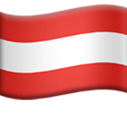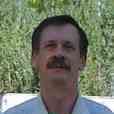-
Posts
73 -
Joined
-
Last visited
-
Days Won
3
Mereloshn last won the day on February 11 2017
Mereloshn had the most liked content!
Converted
-
Currently studying
Hebrew, German
-
Native tongue
English
-
Fluent in
English, Yiddish (semi-fluent)
Recent Profile Visitors
2082 profile views
Mereloshn's Achievements
Newbie (1/14)
12
Reputation
-
 Nicolay Shinkin reacted to a post in a topic:
Some questions for those who are multilingual
Nicolay Shinkin reacted to a post in a topic:
Some questions for those who are multilingual
-
 Nicolay Shinkin reacted to a post in a topic:
Some questions for those who are multilingual
Nicolay Shinkin reacted to a post in a topic:
Some questions for those who are multilingual
-

Some questions for those who are multilingual
Mereloshn replied to Mereloshn's topic in Language Learning
I've learned from my language studies that there is only enough room for three high conversational level languages in my head at a time. Any others I know besides the top three are unable to increase fluency and stay at a beginner level. I've also learned that my brain despises Romance languages but loves Semitic languages. I tried for years to learn Spanish and French, and recently tried to learn Italian, but my brain rejected them in favor of learning advanced Yiddish and Hebrew. At the moment I am trilingual in English, Hebrew, and Yiddish but at the expense of Spanish, French, Italian, and Arabic, all of which I tried to learn but they were driven out of my brain by becoming more fluent in the ones my brain does accept. It seems to me that Yiddish especially chose me and has become my dominant language, what I refer to in my head as Lashon Ha Baal (the master tongue) which is now the language I think in and dream in the most. It's the language that comes the most naturally to me even more so than English, which is supposed to be my mother tongue as an American, but now my thoughts and dreams are mostly in Yiddish and it's currently battling my English for becoming the dominant language. This seems foolish to me at some level because part of me wants to learn languages that are more useful for my life at current, such as Spanish or even Arabic, not a rare obscure secretive language like Yiddish, but it's the language that stays with me the most and my brain seems to want to function and perceive the world in mostly Yiddish, so I think my matrix language is changing. It has also opened the door for me to be able to understand and learn a lot of Hebrew and German. With Hebrew as my third language, it stays in my head and regularly advances unlike any of the Romance languages, but my brain accepts it and is now accepting German also since Yiddish is after all at least 75% a Germanic language, and about 20% Hebrew, so as my master tongue it's bringing in a lot of knowledge about Hebrew and German which is also advancing my language skills. I'm just very disappointed that I don't like Romance languages and they don't like me because they are more popular and more useful but it seems our brains relate to certain languages more than others and sometimes it's not a choice. Yiddish being a gateway language to knowing so much Hebrew and German was not my first choice of which languages I wanted to learn, but my brain wants them and doesn't want the languages I think would be more useful. -
 宇崎ちゃん reacted to a post in a topic:
For beginners: "What language should I learn"? "What is the easiest one"? (NOT MY QUESTION!)
宇崎ちゃん reacted to a post in a topic:
For beginners: "What language should I learn"? "What is the easiest one"? (NOT MY QUESTION!)
-
My opinion on which language to learn has changed. Sometimes the language chooses you regardless of what you think about the usefulness of any of the languages you want to learn. My best languages are the ones that I was the most passionate about, not the ones that I thought would be the most useful to know.
-

Some questions for those who are multilingual
Mereloshn replied to Mereloshn's topic in Language Learning
Blaveloper, do you code switch a lot when you speak to people who know the same languages as you? And what would you say your internal matrix language is? The dominant language you think in and use to associate the other languages you know? Is yours Polish? Just curious about your experience if you're alternating between Polish, English, and Japanese often depending on who you're talking to? If you use English and Japanese a lot those could be dominant languages for you. -
 Mereloshn reacted to a post in a topic:
Some questions for those who are multilingual
Mereloshn reacted to a post in a topic:
Some questions for those who are multilingual
-
How many high fluency level languages can your brain handle? How many languages have you studied and how many of them does your brain maintain at a time? Also, in your experience, have their been certain languages that seem to choose you and draw you in more than other languages you've attempted to learn? For instance, do you go for certain families of languages over others?
-

How do ya'll learn Arabic, whats your way?
Mereloshn replied to teeekilicious18's topic in Study Arabic
Shukurran for your post and links Atikah. Ya, ana adrus ala'rabiyya! Forgive my lack of words as of yet, I've only just begun. For me, I plan to use the internet, especially youtube, for pronunciation, grammar, structure, and basic vocabulary, and books to increase my vocabulary. -
Betakh - Of course in Hebrew slang Bakhoor - Guy/young man in Hebrew Bakhoora - Girlfriend in Hebrew Halevay - Hopefully/if only in ancient Aramaic Ojala - Hopefully in Spanish Makkes - Nothing in Yiddish Yaffa - Beautiful in Hebrew I could go on and on with my list of favorite words in my language studies but those were the first that came to mind.
-
Thank you for posting that Sailor Cat. The video link worked just fine and gave me good perspective and examples that were helpful. I recognized most of those words too from what I know of Germanic languages and discovered I speak Yiddish with a German accent rather than an Austrian one which was interesting.
-
I learned and used my first Arabic word today, shokran which means thank you. I had lunch at a Moroccan cafe earlier, my favorite restaurant in the neighborhood, and I just asked the waitress, a hijab wearing Muslim woman how to say thank you in Arabic and she told me so I used it twice, once when she brought my order to my table and once when I paid my bill at the counter when I was leaving. She seemed delighted I bothered to use the word when speaking to her. It's a good start to my new language journey.
-
Yeah I have read that Egyptian is a commonly understood dialect so that's a strong option. There is no way for me to know for sure what the most common dialect around here is so standard is a logical starting point. There seem to be ample online resources for learning Standard Arabic too.
-
So I'm a long time linguaholic who has studied several languages but now I'm in a situation where it might be in my best interest to learn how to speak Arabic. I'm living in an area now with a considerable Arabic speaking population and Muslim culture here, and now whenever I'm out in the neighborhood I see and hear people speaking Arabic all the time so I think given my new neighborhood, it would be a good idea to learn some conversational Arabic. My goal is to be able to speak it and understand it when others speak it, but not necessarily to read or write it. Which dialect should I select as my new target language? Something specific or just standard Arabic? I believe my best bet would be to go for Darija (Moroccan Arabic) because I've identified some very strong Moroccan cultural influence in my new town. I don't know for sure what form of the language I keep hearing when I'm out though, so I'm unsure how to go about starting this new language project of mine. Again, my goal is to verbally communicate with the Arabic speaking population where I'm now living. Any advice from others studying Arabic would be welcome as I'm a beginner with no background in the language and I'm unsure how to begin.
-
I also learned multiple languages in my childhood. I was born and raised in the USA and I learned three languages in my childhood. They were English, French, and Hebrew. It was fitting for me because I'm actually half French and half Jewish. In my early childhood I learned English and French at the same time in school when I was between ages 4 and 7. Then when I was 7 years old I attended a new school where I continued to learn English (but not French) and at that time also learned Hebrew in Hebrew school for three years between ages 7 and 9. When I became older I mostly only used English and the other two languages fell into misuse.
-
How many of you learned more than one language in your childhood and which languages were they? Did you continue studying them all or did one language become more dominant and the others fell into misuse? It would help if you also mentioned which country you were born in to give more context about your childhood languages.
-
For me it's necessary to use books to advance my language learning. I can look up encyclopedias online but having books about the language I'm learning helps me and prevents dependence on the internet for my studies. I keep collecting new words and phrases I find in books and type them into a word list on my computer so I can go over them repeatedly every day to help with my memorization.
-

Do you speak a rare language?
Mereloshn replied to babyleans's topic in Promote your Website/App/Game/Video
Yeah my main language other than English is Yiddish which is a very rare language. It's the language of Ashkenazis, the white Jews of Germanic and Eastern Europe and it's a language that is 1,000 years old and nowadays it's practically a dying language because of assimilation and replacement by other languages. Only a small number of Hasidic Jewish families still use it, mostly confined to New York City and small pockets of Jewish communities in Europe. The majority of the language, about 75-80% of it, is actually Medieval German (Old German) and about 15% Hebrew, and 10% Aramaic. There is a separate type of Yiddish called Litvik which is a Lithuanian dialect that uses more Slavic words but the type I am learning is the one that leans more towards Hebrew/Aramaic. So yeah my main second language is very rare.



